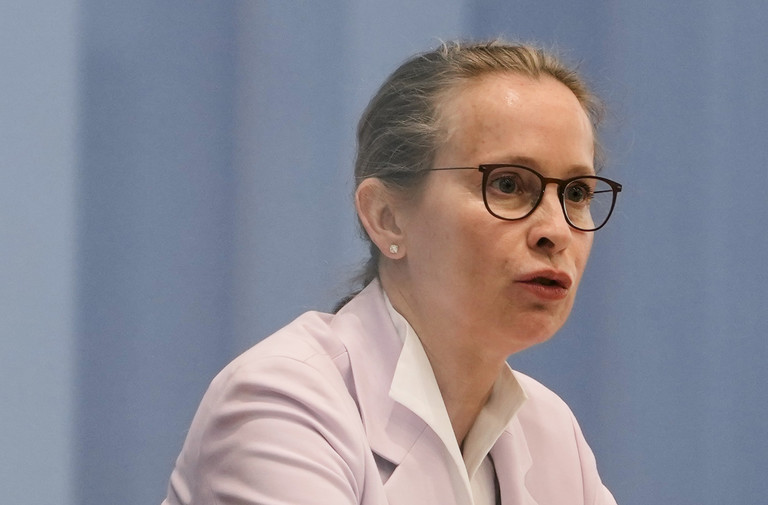Berlin, July 22, 2025 – Germany’s political landscape is reeling from a contentious battle over a judicial nominee that has sparked fears of an “Americanization” of its judiciary, raising concerns about the erosion of the country’s traditionally consensus-driven judicial appointment process. The withdrawal of Frauke Brosius-Gersdorf, a law professor nominated by the Social Democrats (SPD) for a seat on Germany’s Federal Constitutional Court, has highlighted deepening political divisions and the growing influence of polarizing tactics reminiscent of U.S. judicial confirmation battles.
The controversy began when Brosius-Gersdorf, a 54-year-old legal scholar known for her progressive views on abortion and vaccine mandates, faced fierce opposition from conservative factions within Chancellor Friedrich Merz’s Christian Democratic Union (CDU). Her advocacy for decriminalizing abortion and her public support for banning the far-right Alternative for Germany (AfD) party drew intense scrutiny, culminating in a social media storm and allegations of partiality. The situation escalated when Stefan Weber, a self-proclaimed “plagiarism hunter,” published claims that further undermined her nomination, prompting Merz to postpone a scheduled vote in the Bundestag. Ultimately, Brosius-Gersdorf withdrew her candidacy, citing the toll of the smear campaign.
“This week’s events should make us fear for the state of democracy in our country,” said Dirk Wiese, a prominent SPD lawmaker, during a parliamentary session. “The kind of witch hunt we’ve seen against a distinguished law professor is unprecedented and disturbingly reminiscent of debates surrounding U.S. Supreme Court nominations.” Wiese’s remarks echo a broader sentiment among German leaders that the judiciary, long praised for its independence, is at risk of becoming a battleground for partisan culture wars.
Alexander Clarkson, a German politics expert at King’s College London, noted that the controversy reflects a growing unease about the politicization of Germany’s judiciary. “The fights over the U.S. Supreme Court are held up as a cautionary tale of what Germany must avoid,” Clarkson said. “Many Germans worry that their judiciary could lose its impartiality if appointments become mired in ideological conflicts.” The AfD’s increasing influence, coupled with conservative factions within the CDU pushing for a harder right-wing stance, has fueled concerns that the judicial selection process could be weaponized to undermine democratic norms.
Maxim Bönnemann, chief editor of Verfassungsblog, emphasized the rarity of such a public dispute over a judicial nominee in Germany. “Judicial appointments to the Federal Constitutional Court have historically been supported by broad consensus,” he said. “The last comparable controversy was in 2008, but this level of aggression signals a shift in parliamentary culture.”
The failed nomination has also exposed tensions within Merz’s coalition government, which pairs the CDU with the SPD. Right-wing CDU members, frustrated by what they perceive as concessions to the center-left, have leveraged the controversy to challenge Merz’s leadership. Some analysts suggest that these factions may be testing the waters for potential cooperation with the AfD, a move that could further destabilize Germany’s political center.
The withdrawal of Brosius-Gersdorf has prompted calls for reform to protect the judicial appointment process from external pressures. Legal scholars argue that Germany’s postwar constitution, designed to prevent anti-democratic forces from exploiting democratic institutions, may need to be reinforced to address modern challenges. “People are realizing that democracy’s immune system is under strain,” said Ulf Buermeyer, a constitutional law expert. “The rise of the AfD and the increasing polarization in our politics demand a stronger response.”
As Germany grapples with these challenges, the specter of “Americanization” looms large. The U.S. has long faced criticism for its highly politicized judicial confirmation processes, where nominees are often subjected to intense partisan scrutiny and smear campaigns. German lawmakers and scholars fear that adopting similar tactics could erode public trust in the judiciary, one of the country’s most respected institutions.
For now, Brosius-Gersdorf’s nomination remains in limbo, with no clear timeline for a new vote. The episode has left many in Germany questioning how to preserve the integrity of their judicial system in an increasingly polarized political climate. As the nation prepares for upcoming debates on contentious issues like migration and conscription, the battle over the judiciary serves as a stark reminder of the fragility of democratic norms in the face of rising extremism and partisan rancor.
Sources: Reuters, Euractiv, Courthouse News Service
